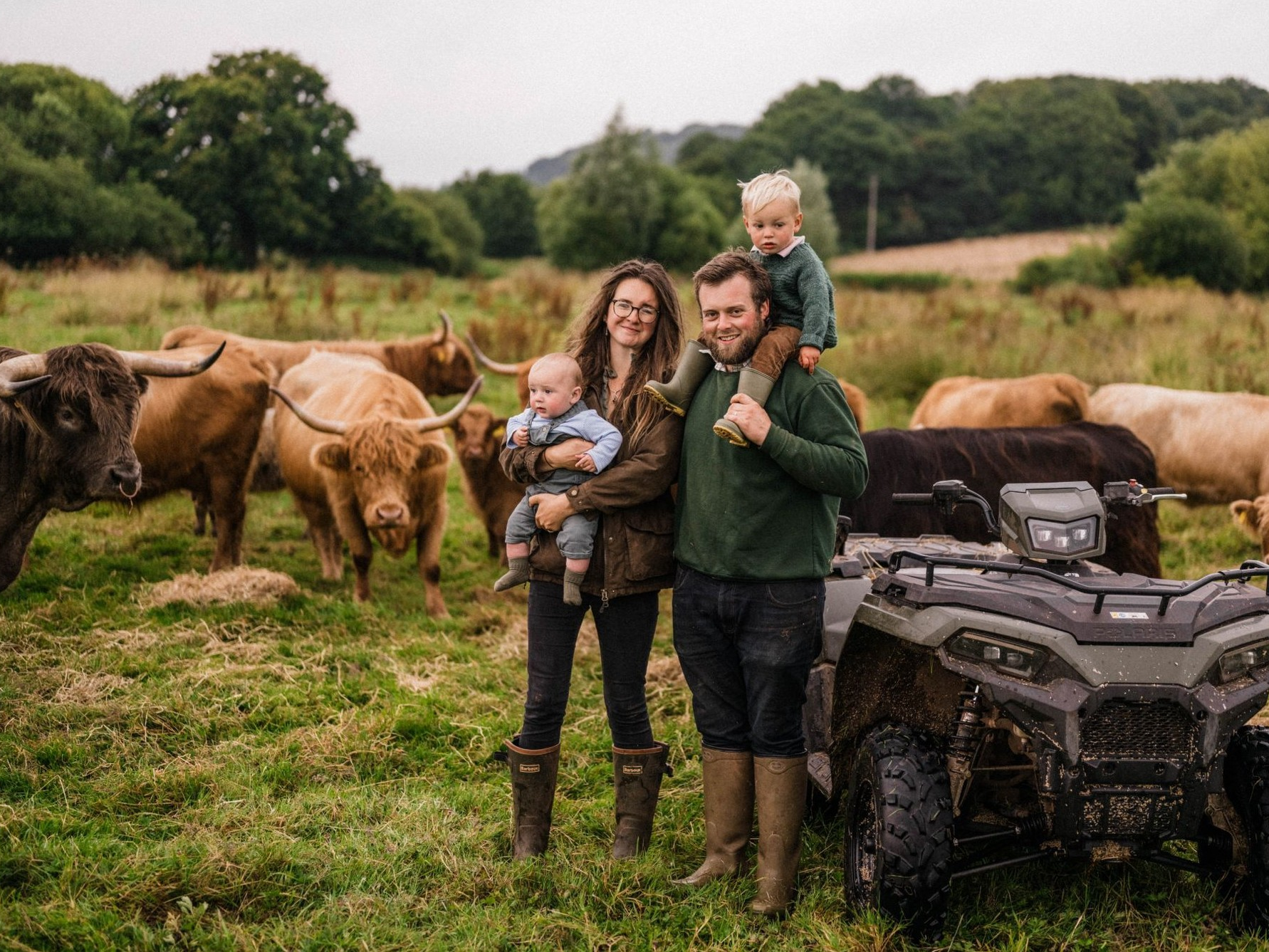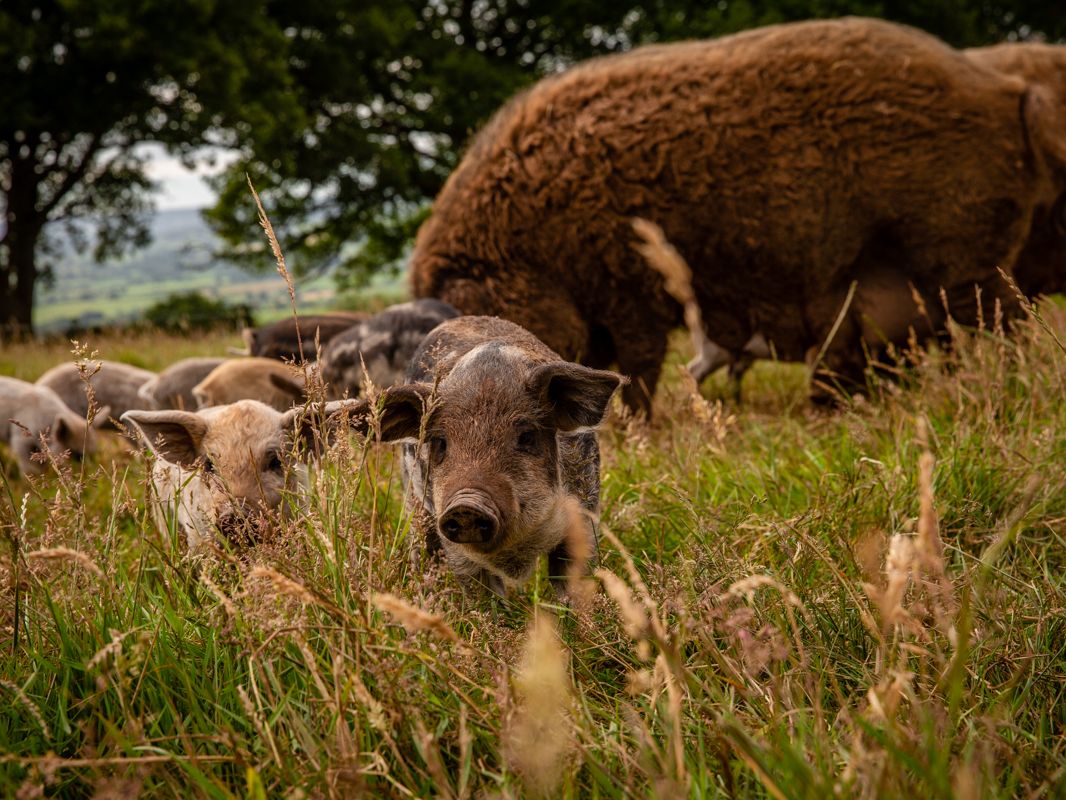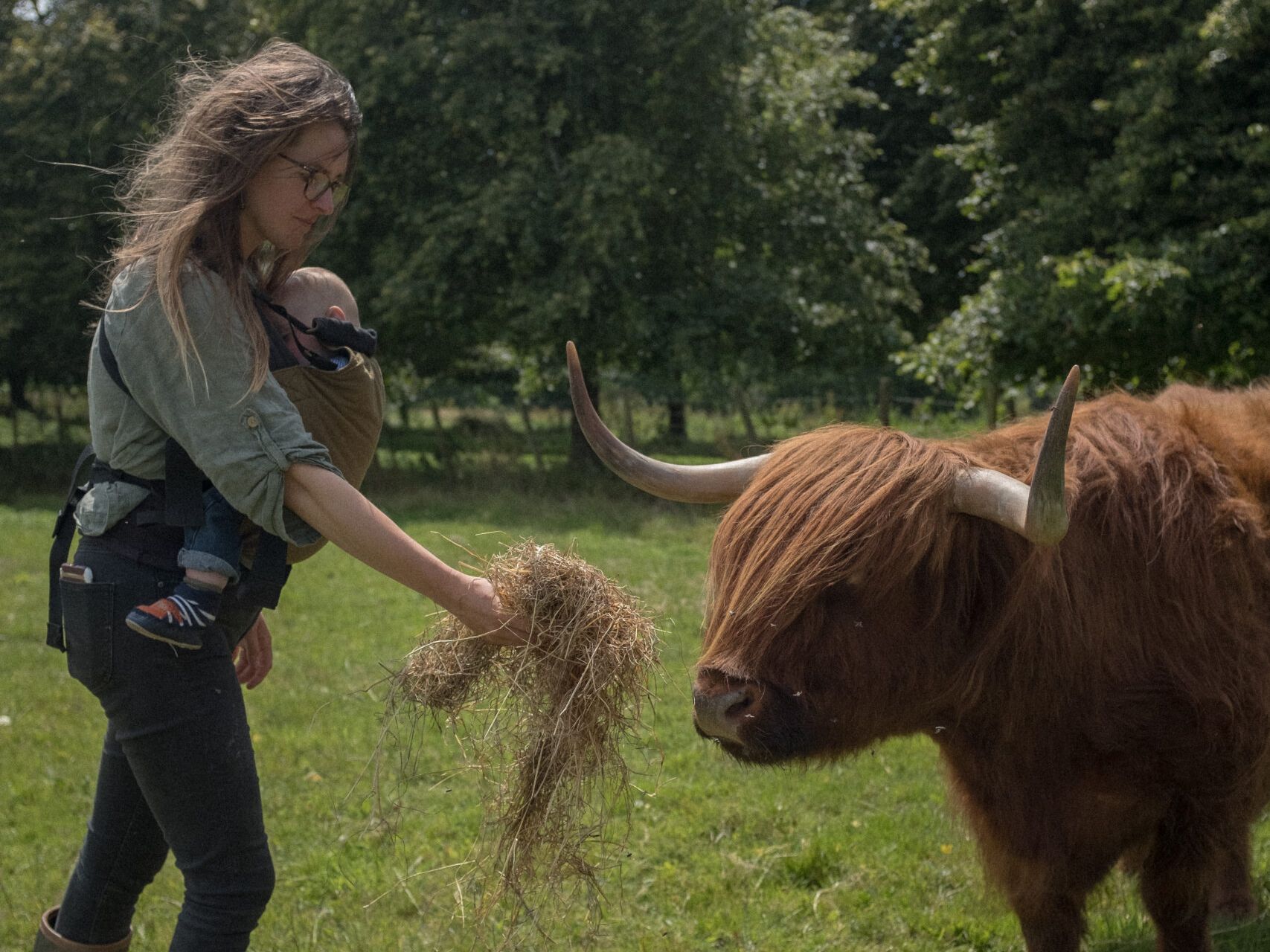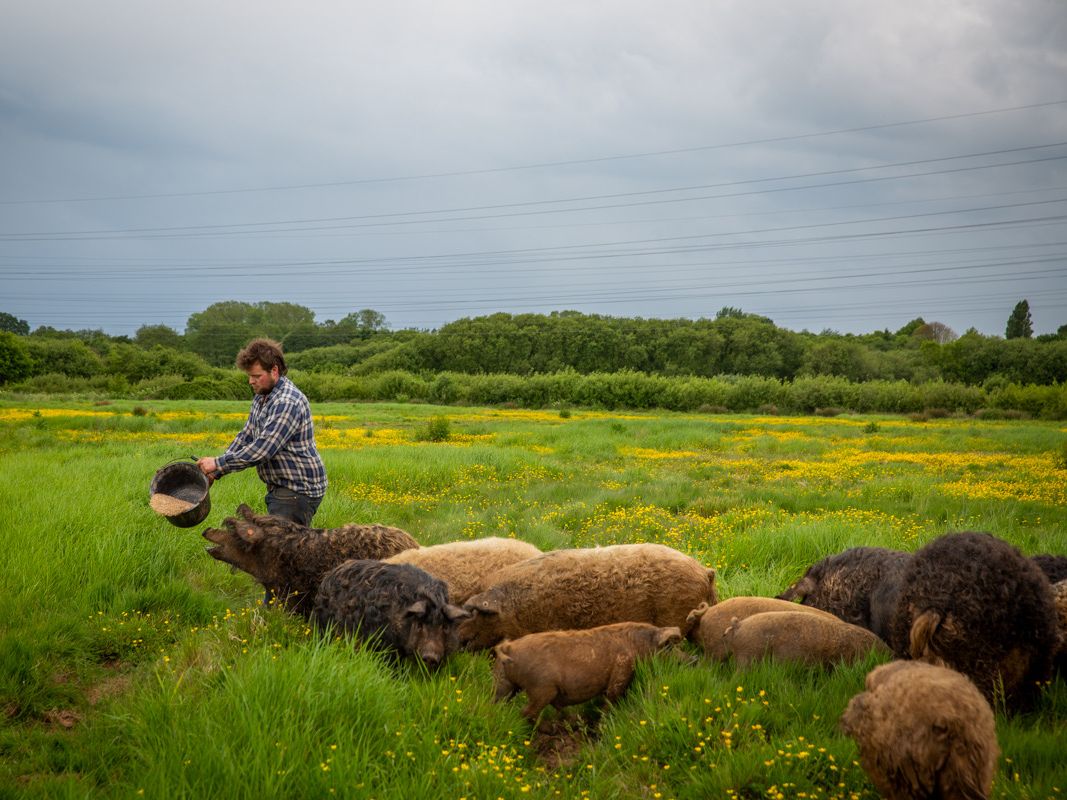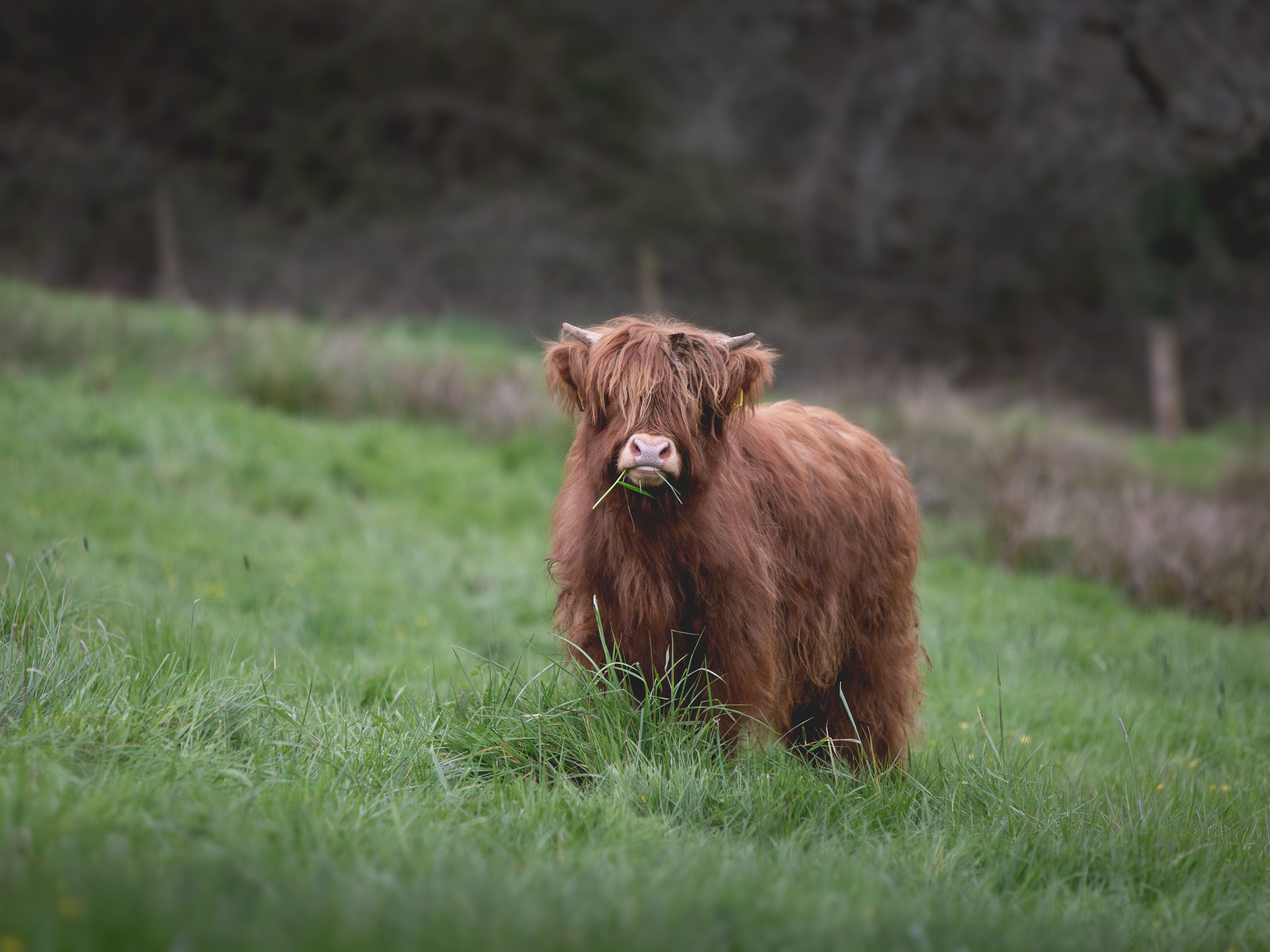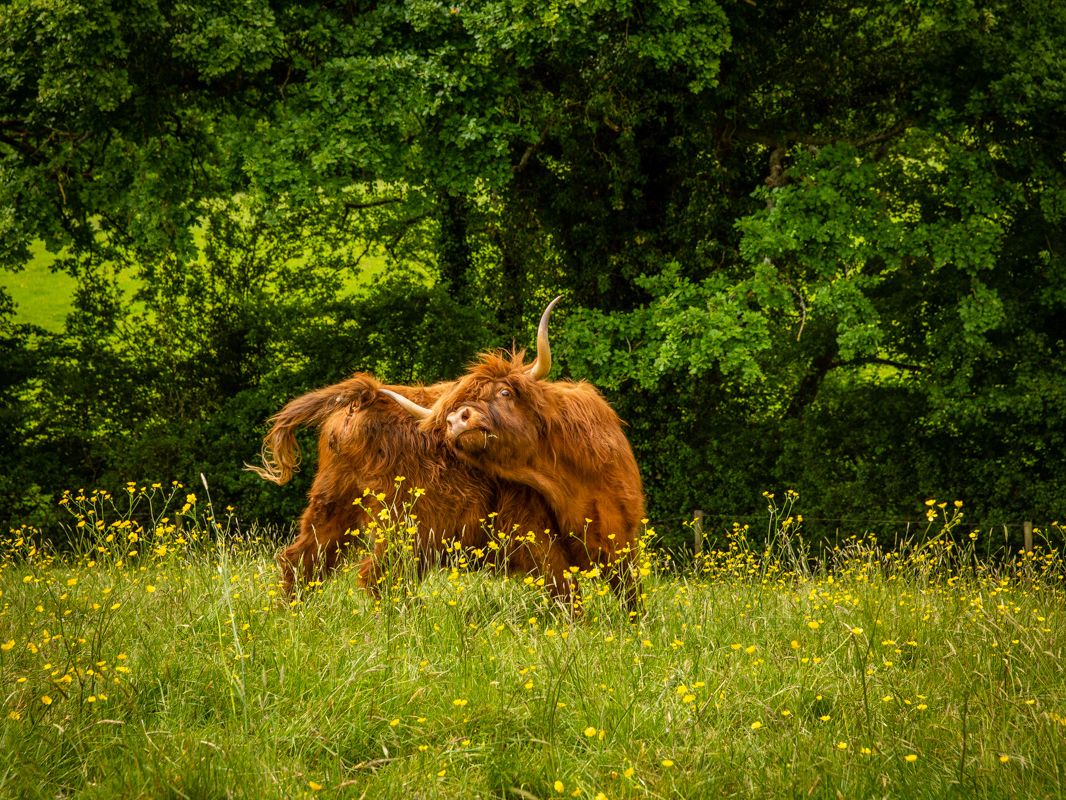Sustainability Spotlight | Springwater Farm
Amelia and Jason Greenway are inspirational young couple who farm 1000 acres of the Killerton Estate and regularly share their farm and their knowledge at events for young and old alike.
New entrant farmers Amelia and Jason Greenway began their farming business in 2018 when they had the fortunate opportunity to rent 80 acres of organic certified land. With no solid or long term base they decided to name their new agricultural enterprise Springwater Farm, after Springwater Cottage where they were living at the time.
In 2023 they were granted a National Trust tenancy and now farm 1000 acres of organic and Pasture For Life certified ground on the Killerton Estate, near Exeter.
We asked Amelia to tell us more about their sustainable ethos.
Regenerative farming and the conservation of rare breeds has always been at the core of our ethos. Now in 2025 we are proud owners of 150 pedigree highland cattle and pedigree mangalitza pigs which we use for conservation grazing and to supply our local community with nutritious produce via our popular meat boxes.
What have you done to make your business more sustainable?
We chose to become organic certified within the first year of establishing Springwater Farm, it was an easy decision for us because everything about organic farming aligned with our values.
We believe the best way to nourish and heal our land's ecosystem was through a chemical free farming system using resilient breeds, with an appropriate carcass size for our heavy clay soils.
However becoming organic didn’t feel enough, so in 2022 we became accredited with Pasture For Life. This was a smooth transition because we were already feeding our cattle a 100% grass fed diet only, no concentrates.
In terms of our regenerative mindset we try and focus on being as nature friendly as possible while ensuring we are still farming productively. Our hedgerows are left to regenerate for a minimum of three years before seeing a light flail, many of our hedgerows have been left longer.
All our hay is made in late summer to maximise biodiversity within our pastures allowing the seed to set before cutting. As for our water courses, we do not spread any slurry or farm yard manure in fields which have running water courses through them. These are just a few basic examples of the sustainable farming approaches we have undertaken.
What would you like to change in the future to improve your sustainability credentials further?
Sustainability is very important to us here at Springwater Farm, however it must be noted that improving resilience is also another top priority of ours. Both overlap each other within regenerative farming systems and are essential if we wish to improve our British soils and the food security crisis.
Firstly, we have decided to make the controversial decision to stop sending our farm produce via courier. Despite all of our produce being wrapped in fully recyclable British packaging we feel shipping our meat around the UK on a diesel courier does not reflect our ethos.
That is why we have decided to make the decision to sell only to local customers from now on. We would much rather nourish and provide for our local community and reduce food miles than supply a stranger we will never meet or welcome to the farm.
Over the years we have sold many couriered meat boxes and without the support from those customers we would not be in the position we are today, however it is time to return to our original plan, ‘local food for local people’.
Improving our grazing management is also a change we are looking to implement for 2025/2026 by using no fence collars on our highland cattle to holistically rotate them around our pastures more regularly. We hope this will improve our soil health by increasing aggregation within the pastures making us more resilient against flooding and drought, carbon cycling, biodiversity and sword lengths.
What are your tips for other businesses that want to become more sustainable?
In our opinion starting off with an accreditation that aligns with your farming business is a good first step.
Although this will increase your farm paperwork load and the idea may seem daunting, it does ensure you are being inspected regularly and pushed to keep environmental documentation for your farm. This demonstrates to our customers and anyone else who may question us, that we truly care for a sustainable farming system and are not claiming to more sustainable than we actually are.
Another aspect that we feel is rarely considered is breed type. When setting out on our regenerative pathway we found choosing breeds that were self sufficient when farrowing/calving; were hardy enough to live out year-round while losing minimal condition, and were able to convert rough forage to meat easily while providing well marbled meat was what allowed us to secure land tenancies with local landlords.
It was a winner for landlord's environmental schemes, for our desire for high quality meat sales… and our animals play a fantastic role grazing in areas that other breeds struggle to thrive in, such as dense scrubland, floodplains and wood pasture sites.
